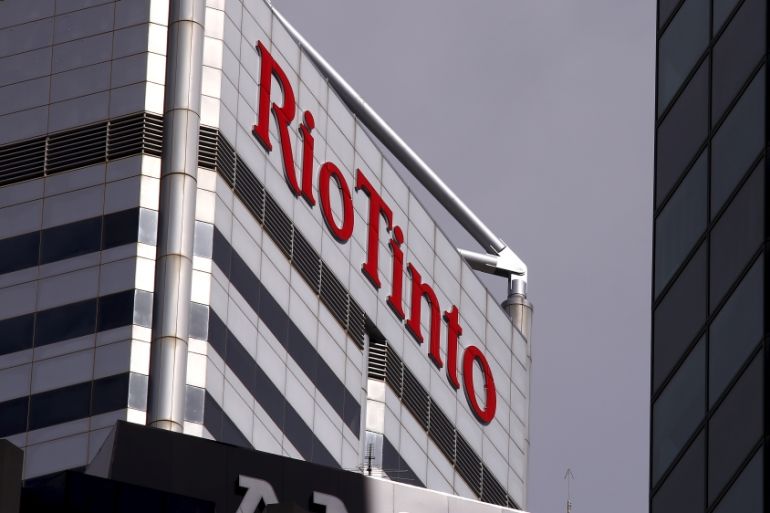Rio Tinto cuts executive bonuses after Australia cave destruction
But mining giant stops short of removing executives after destruction of caves considered sacred by Indigenous people.

Rio Tinto says it will cut the short-term bonuses of some senior executives but stopped short of a leadership overhaul following review of the company’s destruction of two ancient caves in Australia.
Chief Executive Jean-Sebastien Jacques and two other leaders will take financial penalties after the world’s biggest iron ore miner legally destroyed two historically significant sacred caves in the state of Western Australia – against the wishes of their Aboriginal traditional owners – as part of a mine expansion.
Keep reading
list of 4 itemsPhotos: Indigenous people in Brazil march to demand land recognition
Holding Up the Sky: Saving the Indigenous Yanomami tribe in Brazil’s Amazon
Indigenous people in Philippines’s north ‘ready to fight’ as tensions rise
Rio said it would reduce the short-term bonuses of Jacques, Chief Executive of Iron Ore Chris Salisbury, and Group Executive, Corporate Relations Simone Niven in 2020 by about $3.7m in total.
Jacques’s long-term incentive plan award would also be reduced by about 1 million pounds ($1.3m). He was paid 5.8 million pounds ($7.6m) last year.
“The Rio Tinto board has come to an informed judgment that the sanctions that have been applied to senior executives are appropriate,” Michael L’Estrange, who led the review, told the Reuters news agency.
Rio Tinto blew up the caves in Juukan Gorge, about 1,075km (667 miles) north of Perth, in May as part of an expansion programme in the Pilbara iron ore region, provoking an outcry and calls for reform of heritage protection laws.
Explosives destroyed two ancient rock shelters, where artefacts discovered included 4,000-year-old plaited human hair with genetic links to the present-day traditional owners, the Puutu Kunti Kurrama and Pinikura people.
‘Irreplaceable cultural heritage’
The destruction sparked public outrage and an Australian government inquiry that senior Rio leadership faced early this month. The penalties were far short of the management changes pushed for by some investor groups who have criticised Rio’s leadership for a lack of accountability.
“Irreplaceable cultural heritage has been lost and the only consequence for any of the senior leadership at Rio is the loss of a bonus – not even their job,” said shareholder advocacy group the Australasian Corporate Centre for Responsibility.
“Rio’s board could have acted decisively. This soft touch, public relations-oriented review calls into question the suitability of every board member, especially the Chair Simon Thompson and the head of the review Michael L’Estrange.”
L’Estrange said he was confident Rio’s board had made the correct decision that was in line with community expectations, even as investor pressure on boards for greater accountability grows. In a separate corporate scandal, Australian wealth manager AMP Ltd saw a leadership shake-up on Monday after investors were unhappy with board decisions around accountability over allegations of inappropriate conduct.
“The board has thought very, very deeply on this… Now we will consult with investors and others,” L’Estrange said.
Rio said: “The review found no single root cause or error that directly resulted in the destruction of the rock shelters. It was the result of a series of decisions, actions and omissions over an extended period of time”.
The Puutu Kunti Kurrama and Pinikura did not comment. They have previously said they were too distressed to comment.
Rio Tinto is reviewing the organisational structure of its communities function that will report to Mark Davies, who joined the executive committee in charge of safety and technical projects in July. It had previously reported to corporate affairs.
The miner also said it was reviewing the terms of its existing 2011 agreement with the Puutu Kunti Kurrama and Pinikura, in relation to consent to “reflect evolving practice.”
Rio did not tell the Puutu Kunti Kurrama and Pinikura about three alternative mining plans, Jacques told the government inquiry, despite saying it had won fully informed consent for blasting.